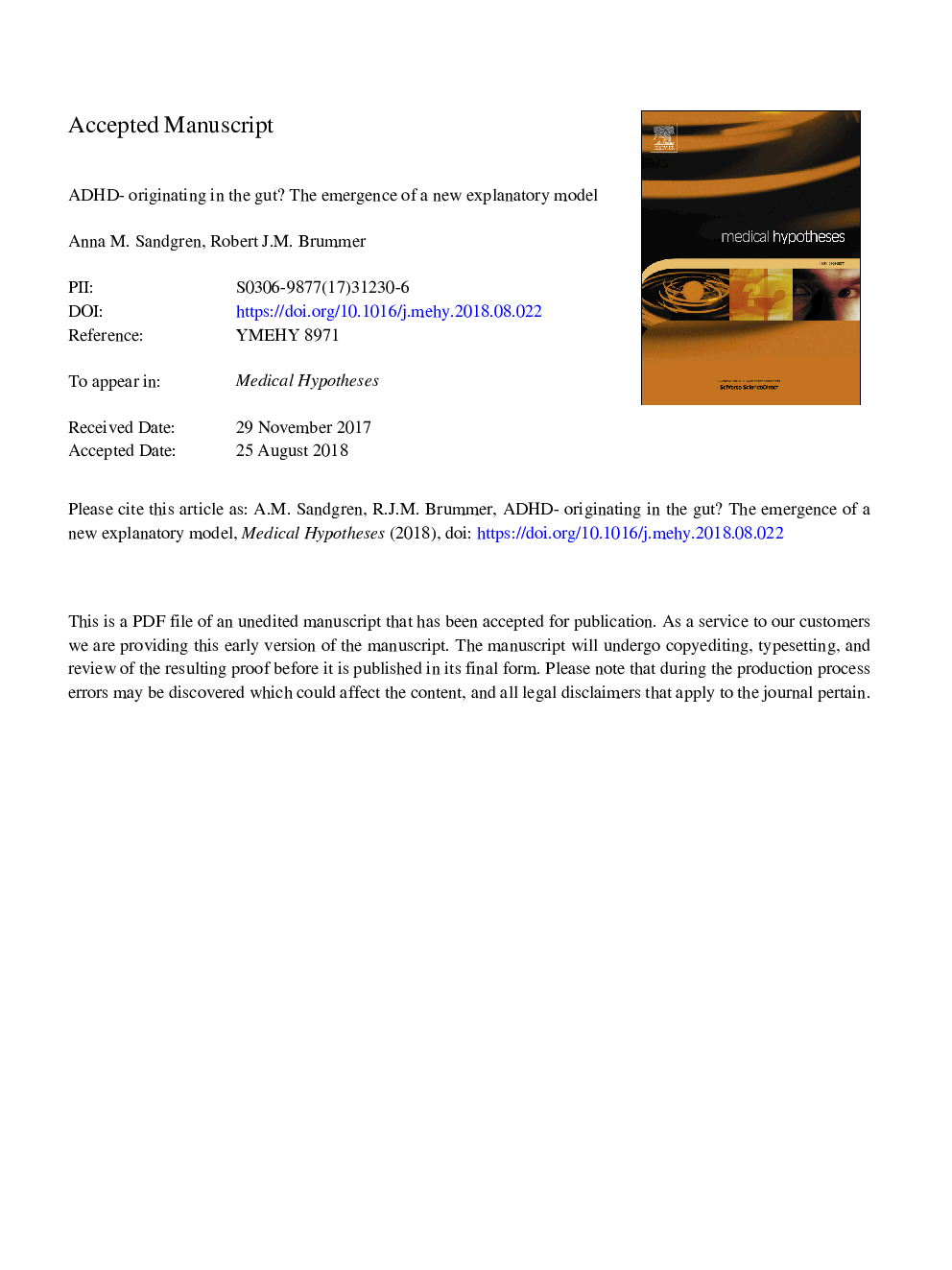| Article ID | Journal | Published Year | Pages | File Type |
|---|---|---|---|---|
| 9954749 | Medical Hypotheses | 2018 | 54 Pages |
Abstract
The microbiome-gut-brain axis paradigm explains that alterations in the central nervous system and behavior may be secondary to functional changes in the gut in general and more specifically the enteric nervous system. An unfavorable development of the intestinal microbial ecosystem, leading to e.g. a diminished microbial diversity, may play a central role. This paper outlines, and describes the theoretical basis of, a novel integrative model explaining the etiology and pathogenesis of ADHD in a microbiota-gut-brain context, taking into account the complexity of the bi-directional signaling between the gut and the brain.
Related Topics
Life Sciences
Biochemistry, Genetics and Molecular Biology
Developmental Biology
Authors
Anna M. Sandgren, Robert J.M. Brummer,
